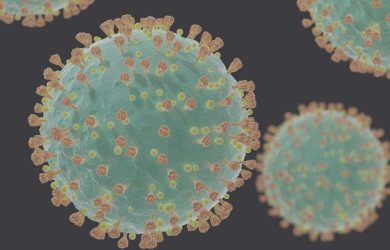Despite both her parents being scientists, the last thing Emily Jordan [2009] thought she would be was a scientist. Like her sisters, a graphic designer and musician, she was quite arty as a child.
At school Emily, who was born in Washington State and grew up in Iowa City and Chicago, loved literature, played the viola in orchestras and planned to do politics or social anthropology.
When she got to Columbia University, despite declaring her major as anthropology, she took a psychology class and got involved in a psychology research project in her second year. “I had planned on studying abroad in Senegal as an anthropologist, but was accepted to the psychology honours programme and so had to choose between spending a semester abroad or working for two years in a lab on my own project. I chose research. I found that it was very creative and so different from what I expected,” she says. “When you read science textbooks it’s all about the facts, but research is all about questions rather than answers and the best way to attack a problem is not necessarily linear or obvious, unlike how many people perceive science.”
She thinks that if she had not been able to do hands-on research as part of her undergraduate course she would not have wanted to become a scientist and pursue a PhD through the gates scholarship. “I found it really exciting to go from the classroom to looking at a problem which you didn’t know the answer to. Working in the lab on an experiment is very different to reading about science in a book,” she states.
She says that growing up she knew her dad, a chemistry professor, was very passionate about his work and would go into the lab at weekends, but she didn’t understand why until she herself got the bug.
She also wanted to travel and see the world. She had done some travelling as a child. Her parents went on sabbatical to Rennes in France and Oxford. When she got to university she started travelling on her own.
Because of this love of travel, she opted to do a double major in anthropology and psychology at Columbia. “I realised the more I studied that, while I loved ethnography because I loved travelling and reading about different places, what I was fundamentally interested in in anthropology was human behaviour and interactions. In psychology I could look in depth at this and actually test my ideas on the science of social behaviour,” she says. She also found that anthropological research was fairly solitary, whereas she loved the collaborative nature of science work.
Her undergraduate honours research project involved studying how social enrichment affects behavioural development. She studied the behaviour of mice that grew up in different environments and found that mice reared in socially enriched environments behaved differently than socially impoverished environments, for instance, they made better mothers, were less anxious and less aggressive and these effects had an impact on their offspring.
At Cambridge, where she is in the second year of a PhD in Experimental Psychology, she is studying how social environment affects rats’ addictive behaviour. “Rats in the wild are very social,” she says. “They are very hierarchical with one usually being dominant, so rats of different social statuses in the group have vastly different experiences and stressors in their natural environment.” She has been studying groups of rats, investigating whether individual social status plays a role in each rats’ drug-taking behaviour. So far, says Emily, the research suggests social environment is an important factor in addictive behaviour. “It does not directly correlate to human behaviour, but it does help us to understand the mechanisms behind how factors in the environment can affect drug-taking behaviour and then we can develop useful models to test treatments that can help human patients,” she says.
While at Cambridge she has made many friends through the Gates network and has been able to travel widely in Europe with her husband, who she met at Columbia.
She still has a long way to go to finish her PhD and has no fixed plans for the future. She does, however, hope to continue travelling. “One of the good things about science is that there are jobs in lots of places,” she says.












